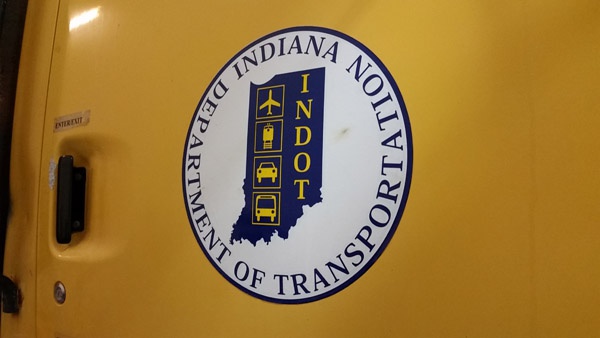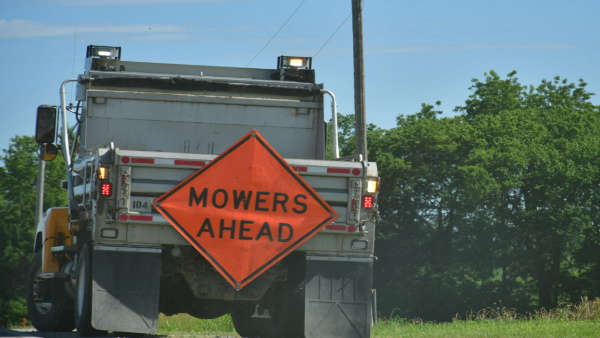INDOT encourages residents to take steps to prepare for the hazards that come with winter weather.

INDIANAPOLIS - Across the country temperatures are dropping and winter weather is on the horizon. The Indiana Department of Transportation urges people around the Hoosier State to be prepared.
Governor Eric Holcomb proclaimed Nov. 7-13 Winter Weather Preparedness Week in Indiana. Along with the National Weather Service and other agencies, INDOT is encouraging the public to use this week as a reminder to take steps to prepare for the hazards that come with winter weather. For safe travel, INDOT offers the following tips:
- Always slow down for conditions, especially on snow covered roads.
- Never tailgate or drive beside a snowplow. Drivers may not be able to see you.
- The safest place on the road during a winter storm is behind a snowplow, but if you must pass, do so carefully and remember to use appropriate speed for conditions.
- Be prepared in case of a crash and being stranded. Always carry an emergency kit in your vehicle with food, water, a phone charger, sand or cat litter, flares or bright LED alternatives, a flashlight, and blankets.
- Keep your vehicle full of gas.
- Keep a shovel in your car to dig out around your tires and your tailpipe. Carbon monoxide buildup can cause injury or death.
- Make sure your vehicle battery is strong, fluids are at the correct levels, and your spare tire is properly inflated.
According to the National Weather Service, there are over 66,000 variations of winter storms. Snow, ice, freezing rain, and fog all present challenges for winter travel. Roads can become slick, even after pre-treatment and regular treatment during and after a storm. It’s important to know the facts about INDOT's winter operations.
Maintenance crews monitor forecasts several weeks out and prepare for a winter storm based on the type of precipitation, conditions leading up to the winter storm, and extended forecast following the storm. Roads are pre-treated with salt brine and regularly treated with rock salt. In colder temperatures, salt and brine alone take longer to activate, so environmentally-friendly chemicals are used to boost effectiveness. Snowplow drivers typically work 12-hour shifts during a storm and on average, take two-to-three hours to complete a full route.
For information about road conditions during a winter storm, you can visit indot.carsprogram.org or download the INDOT TrafficWise app for Apple and Android Devices. You can also follow INDOT on social media for regional information and additional resources.

 Superintendent Writes Letter Regarding Manchester Elementary School Closing
Superintendent Writes Letter Regarding Manchester Elementary School Closing
 Napoleon State Bank Announces Retirement of Former President, Board Member
Napoleon State Bank Announces Retirement of Former President, Board Member
 Indy Woman Identified as Victim of Fatal Crash on State Road 56
Indy Woman Identified as Victim of Fatal Crash on State Road 56
 New Patient Care Manager Named at Our Hospice of Jennings County
New Patient Care Manager Named at Our Hospice of Jennings County
 Arrest Made in Green Township Road Rage Incident
Arrest Made in Green Township Road Rage Incident
 Ripley Co. Highway Dept. Urges Motorists to Watch Out for Mowing Crews
Ripley Co. Highway Dept. Urges Motorists to Watch Out for Mowing Crews










